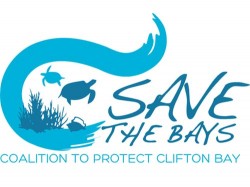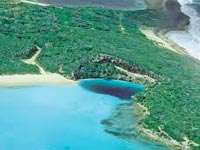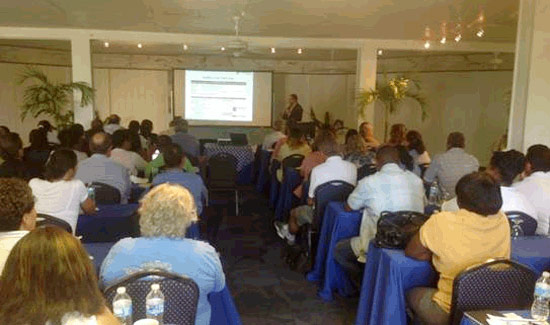 On the heels of a key ruling by the Supreme Court, the Bimini Blue Coalition has enlisted serious scientific muscle to strengthen its claims of environmental mismanagement on the tiny island and provide what it considers “a better plan for Bimini.”
On the heels of a key ruling by the Supreme Court, the Bimini Blue Coalition has enlisted serious scientific muscle to strengthen its claims of environmental mismanagement on the tiny island and provide what it considers “a better plan for Bimini.”
The non-profit group, a partner of the rapidly growing environmental movement Save the Bays, is bringing on board top minds and respected academicians with intimate knowledge of Bimini’s fragile ecosystem.
According to the Coalition, each of the scientists is volunteering and together, they are willing to advise on sustainable alternatives and potential impacts from the current plans for the North Bimini Ferry Terminal project, led by foreign developer Genting Group. Meantime, Genting is being photographed, videotaped and monitored by the Coalition as the Malaysian-based company continues to plow forward full steam ahead with a 1,000-foot pier and 4.5 acre island to accommodate cruise ships from nearby Florida.
A total of eight scientists – each one with a Ph.D. in marine or marine-related science — have joined forces with Bimini Blue Coalition, including Dr. Kristine Stump, Dr. Craig O’Connell, Dr. Demian Chapman, Dr. Eric Stroud, Dr. Bryan Franks, Dr. R. Dean Grubbs, and others.
Dr. Stump, a lead researcher at the University of Miami’s Rosenstiel School of Marine and Atmospheric Science, literally wrote the book on large-scale development in Bimini and its impact on the environment when she submitted her thesis after the initial development that changed Bimini’s eco-system, Bimini Bay Resort, was created. That development has since been taken over by Genting.
Dr. Stump’s thesis dealt directly with the destructive impact of Bimini Bay Resort on the island’s inshore marine ecosystems. Now, she fears the environmental damage will be even greater.
“On the other side of the narrow spit of land that separates the lagoon from the ocean, Bimini’s world famous coral reefs are threatened by the same resort’s highly destructive construction plans,” she said today. “As the only such habitat on the western edge of the Great Bahama Bank, Bimini’s coral reefs are not only home to several critically endangered species of coral, but they are also potentially important to the overall health of other reefs in the Bahamas.”
In the past, she noted how up to half of the lagoon’s mangrove shores have suffered from deforestation. The result, Stump explained, has been “significant declines” in several fish species, nursery habitats, and decreases in the growth and survival of juvenile lemon sharks.
Stump also echoed the concerns of a recent Environmental Impact Assessment (EIA), noting that these natural resources are essentially the “foundation” of the island’s tourism industry.
“It is incredibly important to preserve these fragile natural resources, as they are what bring visitors to the island in the first place,” she added.
The long-awaited EIA, released last month, ignited further controversy regarding the rising mega resort. Critics have blasted the government for allowing construction to begin in the first place before the release of the document, which subsequently revealed major concerns for the environment and the suitability of such a large project for the island.
Resorts World Bimini has insisted that it is sensitive to the environment and its development will bolster the tiny island’s economy.
The controversy once again surfaced this week when the attorneys representing the Bimini Blue Coalition won leave to apply for a judicial review of the ferry terminal project. The organization also expects to hear today on whether it can apply for further injunctions, halting all construction until it is determined if the developer followed protocols.
Lawyers have made a “discovery” request for all permits, approvals, leases and licenses associated with the development.
A co-founder of Bimini Blue Coalition said all of the scientific advisors have intimate knowledge of Bimini and have conducted years of research in Bimini and elsewhere in The Bahamas.
The eight advisors are also expected to lend their knowledge and expertise to the organisation’s high-profile affiliate, Save the Bays which announced last week it had surpassed 5,000 signatures on its petition urging passage of a Freedom of Information Act.
Save The Bays has argued repeatedly that the public never had the opportunity to review plans for a pier or cruise ship terminal on the fragile island or the destruction of wetlands to expand the airport prior to government’s granting approval to developers to proceed. A Freedom of Information Act would allow the public access to public records and information.
The Bahamas is one of the last few countries in the world not to have such legislation, according to the organisation whose petition is on its website, www.savethebays.bs.
Diane Phillips and Associates




